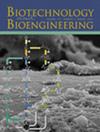人工智能增强的超滤/滤持续过程验证。
IF 3.6
2区 生物学
Q2 BIOTECHNOLOGY & APPLIED MICROBIOLOGY
引用次数: 0
摘要
美国食品药品监督管理局(FDA)和欧盟良好生产规范(EU GMP)附录15的指导方针要求生物制药制造商在整个产品生命周期内保持对其工艺的持续控制,从而确保最终药品的强度、质量和纯度的一致性。因此,生物制药行业对持续过程验证(CPV)产生了巨大的兴趣。典型的生产过程为每个生产批次产生重要的过程和分析数据。业界已经接受了人工数据收集和统计趋势是劳动密集型的,而且容易出错。本研究尝试简化超滤-滤装置的CPV操作。它需要许多任务,包括使用传感器的数据采集、预测机器学习模型、针对控制限制的统计趋势、在定义的间隔内进行过程能力评估(Cpk和Ppk)、故障检测和健壮的过程控制策略。我们希望拟议的框架将帮助生物制药行业实施CPV,并更接近采用工业4.0。本文章由计算机程序翻译,如有差异,请以英文原文为准。
AI-Enhanced Continued Process Verification for Ultrafiltration/Diafiltration.
The guidelines from the Food and Drug Administration (FDA) and the European Union Good Manufacturing Practice (EU GMP) Annex 15 necessitate biopharmaceutical manufacturers to uphold continuous control of their processes throughout the product lifecycle, thereby ensuring consistent strength, quality, and purity of the final drug product. As a result, there is enormous interest in continued process verification (CPV) in the biopharmaceutical industry. Typical manufacturing processes generate significant process and analytical data for every manufactured batch. The industry has accepted that manual data collection and statistical trending are labor-intensive and error-prone. In this study, an attempt has been made to streamline CPV for the ultrafiltration-diafiltration unit operation. It entails numerous tasks, including data acquisition using sensors, predictive machine learning models, statistical trending against control limits, process capability assessment (Cpk and Ppk) at defined intervals, fault detection, and a robust process control strategy. We hope the proposed framework will help the biopharmaceutical industry implement CPV and move closer to adopting Industry 4.0.
求助全文
通过发布文献求助,成功后即可免费获取论文全文。
去求助
来源期刊

Biotechnology and Bioengineering
工程技术-生物工程与应用微生物
CiteScore
7.90
自引率
5.30%
发文量
280
审稿时长
2.1 months
期刊介绍:
Biotechnology & Bioengineering publishes Perspectives, Articles, Reviews, Mini-Reviews, and Communications to the Editor that embrace all aspects of biotechnology. These include:
-Enzyme systems and their applications, including enzyme reactors, purification, and applied aspects of protein engineering
-Animal-cell biotechnology, including media development
-Applied aspects of cellular physiology, metabolism, and energetics
-Biocatalysis and applied enzymology, including enzyme reactors, protein engineering, and nanobiotechnology
-Biothermodynamics
-Biofuels, including biomass and renewable resource engineering
-Biomaterials, including delivery systems and materials for tissue engineering
-Bioprocess engineering, including kinetics and modeling of biological systems, transport phenomena in bioreactors, bioreactor design, monitoring, and control
-Biosensors and instrumentation
-Computational and systems biology, including bioinformatics and genomic/proteomic studies
-Environmental biotechnology, including biofilms, algal systems, and bioremediation
-Metabolic and cellular engineering
-Plant-cell biotechnology
-Spectroscopic and other analytical techniques for biotechnological applications
-Synthetic biology
-Tissue engineering, stem-cell bioengineering, regenerative medicine, gene therapy and delivery systems
The editors will consider papers for publication based on novelty, their immediate or future impact on biotechnological processes, and their contribution to the advancement of biochemical engineering science. Submission of papers dealing with routine aspects of bioprocessing, description of established equipment, and routine applications of established methodologies (e.g., control strategies, modeling, experimental methods) is discouraged. Theoretical papers will be judged based on the novelty of the approach and their potential impact, or on their novel capability to predict and elucidate experimental observations.
 求助内容:
求助内容: 应助结果提醒方式:
应助结果提醒方式:


